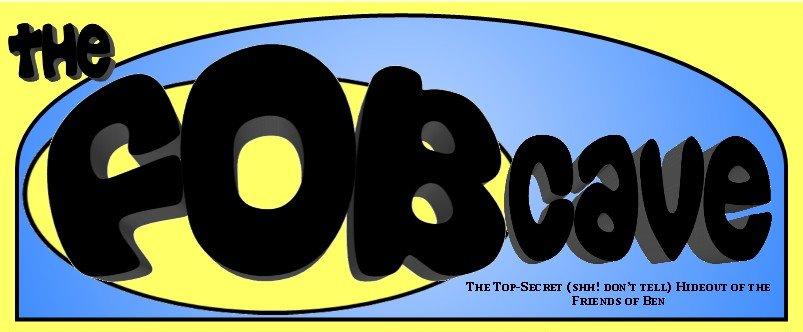It's easy enough for me to believe that a child was born in a stable two thousand years ago, that many believed he was the fulfillment of ancient prophecies, that he taught many profound and beautiful things as a child and later as an adult, and that eventually he was killed because of those things he taught. All of this jibes with my personal experience with the world. I can even believe in things this child-man taught about a God who loves us and speaks to us through whisperings of his holy Spirit, because these things do not contradict the world as I know it, and in fact many of my experiences suggest such a reality.
On the other hand, it's much harder for me to believe, in the way that I believe water is composed of atoms we call hydrogen and oxygen, that this child-man was born to a virgin mother, that he walked on water and turned water to wine, and that three days after he was killed he literally rose from the dead. I've seen with my own eyes and read well-documented accounts of small miracles of the type that do not blatantly defy the laws of the universe as we understand them but rather stretch our understanding of serendipity and coincidence--a well-timed phone call in answer to a prayer, or an unexplainable feeling that leads to a better decision than could have been made based on logic alone--but I've yet to see any miracles so bold in their disregard for physics, chemistry, and biology as those described in the Bible seem to be. Call me faithless (and perhaps I am), but I have a hard time conceptualizing a reality that is so far removed from the reality I know.
There is a fifth verse to "O Little Town of Bethlehem" that I have never noticed before a couple weeks ago as I listened to Jewel sing it:
O holy Child of Bethlehem, descend to us, we pray;I was simultaneously struck by the beauty of the image--Christ's mortal birth as a metaphor for his birth in our hearts as he cleanses us of sin--and by the awareness of my uncertainty--do I really believe not only in Jesus as a historical figure but in Christ as a past and present reality? As most questions of this nature tend to be with me, this one remains unanswered.
Cast out our sin, and enter in, be born in us today.
We hear the Christmas angels the great glad tidings tell;
O come to us, abide with us, our Lord Emmanuel!
A couple years ago, when I still felt a need to defend the Mormon faith to my atheist brother, I made an argument along the lines of "Well, if you live the gospel and it all ends up being a lie, then you live a good life, you're happy because of your beliefs, and then you die and it doesn't matter. But if you don't live it and it does end up being true, then you're screwed. Logically, you're better off living your life as if the gospel were true." He didn't agree with my logic. Life should not be about covering your bases, but about pursuing some objective standard of truth. I had to agree with him--truth is a better principle than fear of consequences.
I'm beginning to wonder, though, if our slight differences in perspective aren't related to our respective choices of academic discipline. My brother loves great literature, but he is a scientist at heart. I, meanwhile, am a humanist currently masquerading as a social scientist. Truth is important to me, but I tend to define it more fluidly. I am a writer and reader primarily of fiction--the truths that matter most to me are embedded in intricate lies, but I find them valuable nonetheless. Beautiful, even.
So I pray, along with Jewel and anyone else who makes it to the fifth verse of "O Little Town of Bethlehem," that Christ descend to me, cast out my sin, enter in, be born in me today. I don't know whether I'm praying to a physical being who literally was born to a virgin, performed miracles, died, and was resurrected, or to an idea, a beautiful story that has been told and retold so many times that it sounds true. Perhaps this is somewhat Campbellesque of me, but I think when you're talking about a myth of this proportion, the lines between reality and fiction are blurred and it ceases to matter. And the pragmatist in me persists: If my belief in a Christ--whether that being be fiction or reality--makes me a better person, as I hope it does, then does it really matter?
I suppose I do believe in magic--the sort of magic that takes the story of a virgin birth that may or may not have happened two thousand years ago, and turns it into something real, something that really will make a difference in who I am today. If nothing else, I hope for that kind of magic.





5 comments:
A couple years ago, when I still felt a need to defend the Mormon faith to my atheist brother, I made an argument along the lines of "Well, if you live the gospel and it all ends up being a lie, then you live a good life, you're happy because of your beliefs, and then you die and it doesn't matter. But if you don't live it and it does end up being true, then you're screwed. Logically, you're better off living your life as if the gospel were true." He didn't agree with my logic. Life should not be about covering your bases, but about pursuing some objective standard of truth. I had to agree with him--truth is a better principle than fear of consequences.
I have had the same conversation with my best friend. I greatly respect his intellectual integrity.
Ah yes, Pascal's wager. When I expressed (rather more arrogantly) a similar logic of belief to one of my college philosophy professors, he replied, "And what do you think God would think of that line of reasoning?"
"...Truth is a better principle than fear of consequences."
You should definitely throw that in your book...FYI.
.
Nicely said.
Hmmm...I think I believe in it..magic, that is.
Post a Comment